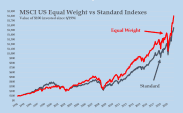A Centers for Disease Control and Prevention advisory committee voted to extend the federal “pause” halting immunizations with Johnson & Johnson’s COVID-19 vaccine over concerns over severe cases of blood clots reported in six people who have received the J&J shot.
Johnson & Johnson’s stock
JNJ,
The much-heralded rollout of J&J’s single-dose vaccine hit a wall this week when federal health officials said six cases of severe blood clots had been reported among the nearly 7 million individuals who have received the J&J shot in the U.S. Members of the Biden administration have sought to reassure the public that vaccine safety is a priority and the nation’s immunization program remains well supplied.
The severity of the cases — one woman died, and all six were hospitalized in intensive care units — prompted the CDC and the Food and Drug Administration to recommend a “pause” in immunizations with this vaccine on Tuesday.
The blood clots occurred as a result of cerebral venous sinus thrombosis in combination with thrombocytopenia, a condition that causes low levels of blood platelets.
“While causality has not been fully established between these very rare events and our vaccine, we recognize these events could represent an important potential risk with the Janssen vaccine,” Dr. Aran Maree, chief medical officer for J&J’s drugs business, said during the meeting.
The CDC’s Advisory Committee on Immunization Practices, which convened an emergency meeting to discuss the potential risks of the vaccine, on Wednesday voted to extend the “pause” and will reconvene at an undetermined date. It plans to provide the date of the next meeting by Friday.
Much of the discussion at the end of the meeting focused on whether committee members needed additional clinical information before making a formal recommendation or whether waiting to make a choice would further harm Americans at risk for contracting COVID-19.
“We’re in a situation where not making a decision is tantamount to making a decision, and the extension of the pause will invariably result in the fact that the most vulnerable individuals in the United States were prime candidates for the Johnson and Johnson vaccine will remain vulnerable,” Dr. Nirav Shah, director of Maine’s CDC and advisory committee member, said during the meeting.
J&J’s shot has been considered an easier and more equitable tool in the nation’s mass vaccination program because it only requires one shot and can be administered in people’s homes or in mobile units.
Additional details were shared about the six cases during the ACIP meeting. All six cases were in white women between the ages of 18 and 48. Three were considered obese, and none were pregnant or postpartum. The median time to symptoms appearing was eight days, and five of the six reported headaches as an initial symptom.
One case of CVST was reported in the clinical trial, in a 25-year-old white man, though he did not have low levels of platelets.
No reports of CVST with thrombocytopenia have been reported in people who have received the Pfizer Inc.
PFE,
Health officials have described similarities between the cases thought to be associated with the J&J vaccine and the 141 blood clots associated with the AstraZeneca
AZN,
Several countries have since issued age-based recommendations for the AstraZeneca vaccine. In U.K., it is recommended for adults older than 30; Australia recommends it for people over the age of 50; and Europe now says it should be used in people between the ages of 55 and 70.
J&J’s stock has gained 1.6% since the start of the year, while the broader S&P 500
SPX,
Additional sources:
• What to know if you got or scheduled the J&J shot
• Read the presenters’ slides from the ACIP meeting
• Watch the emergency meeting
• Read the CDC’s Health Alert







